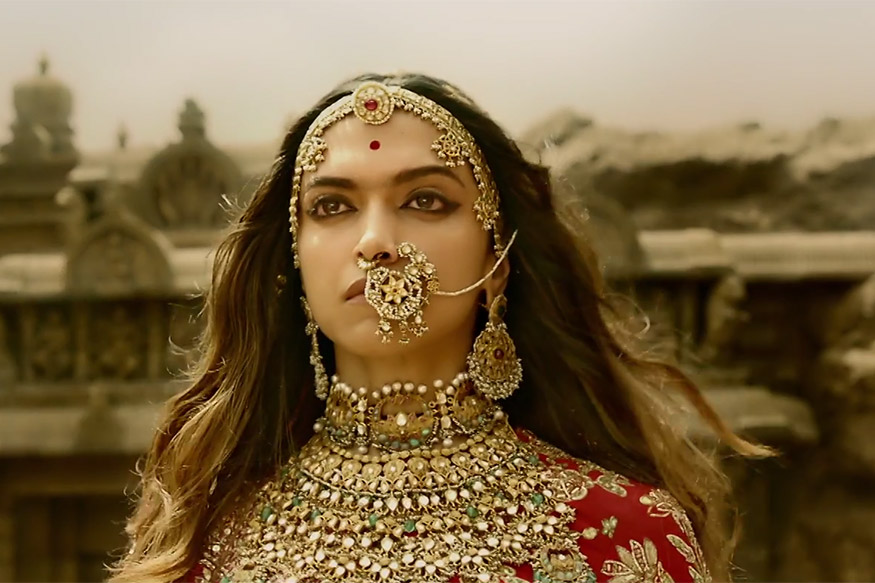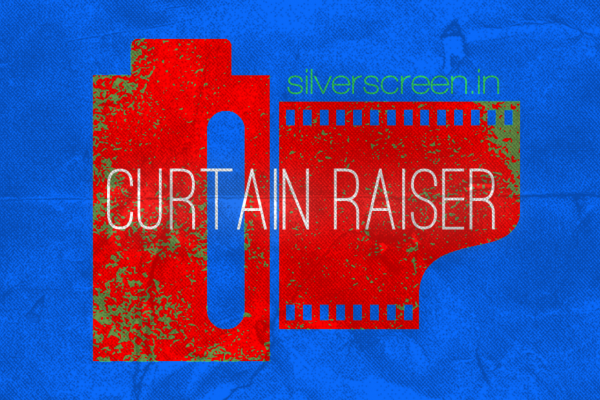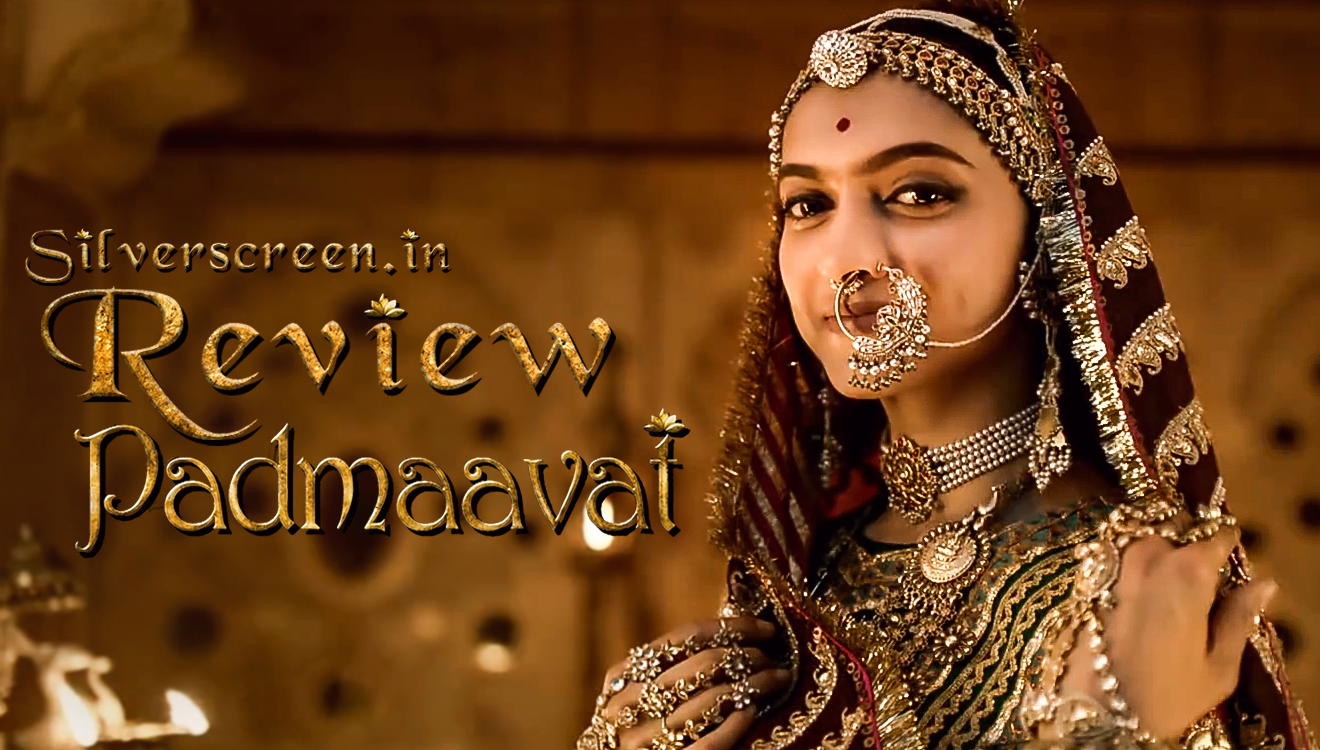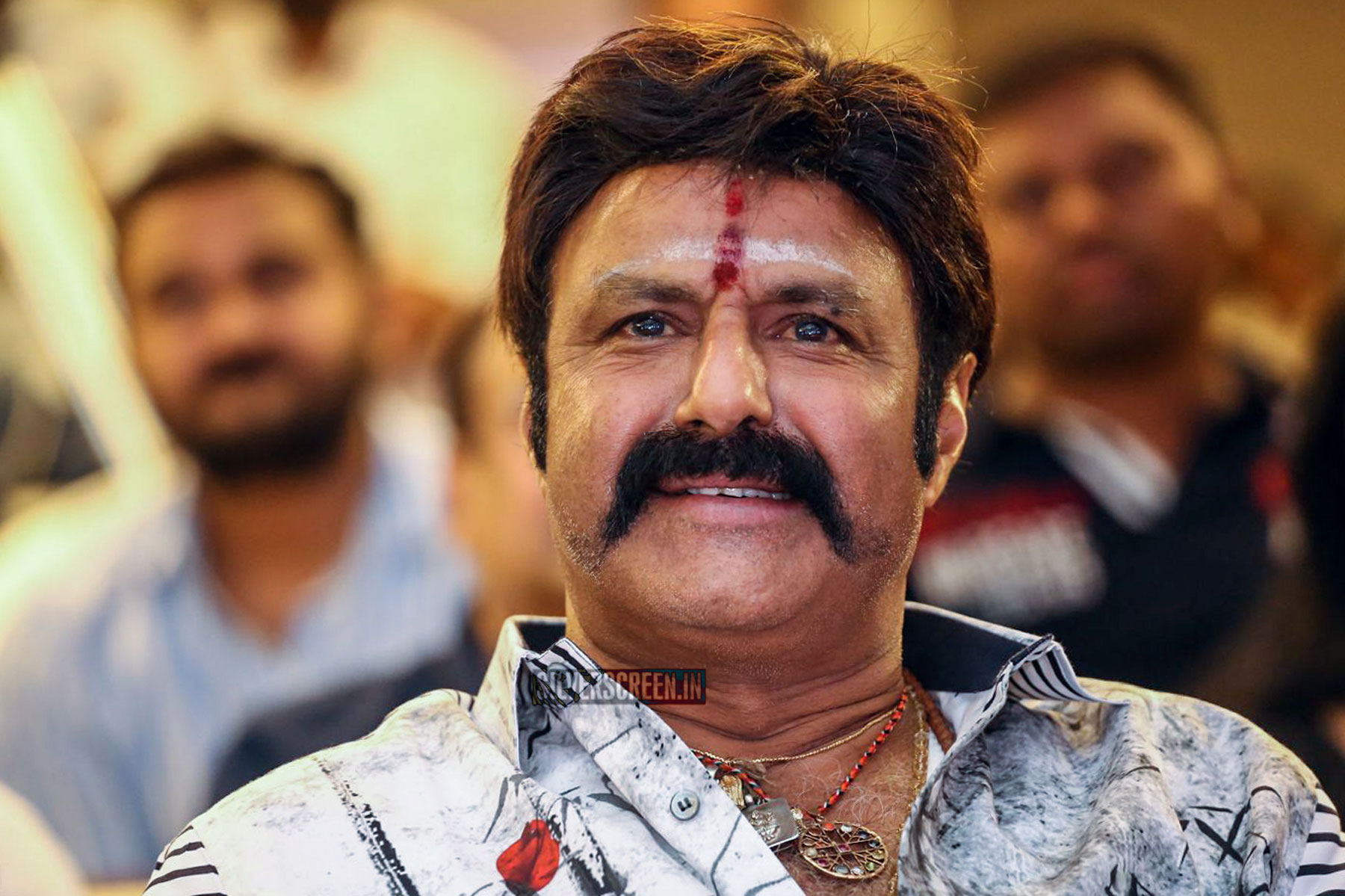Sanjay Leela Bhansali’s Padmaavat has finally got a release date – January 25. It was originally supposed to release on December 1 last year.
The film got a U/A certificate from the Central Board of Film Certification and the title of the film was changed to Padmaavat from Padmavati. As per the CBFC’s directions, the filmmakers were asked to include a disclaimer at the beginning of the film and during the interval, changes in the song ‘Ghoomar’ so that the characters are depicted correctly.
The filmmakers confirmed a release date but along with it came full page ads in almost all the leading dailies with a list of disclaimers.
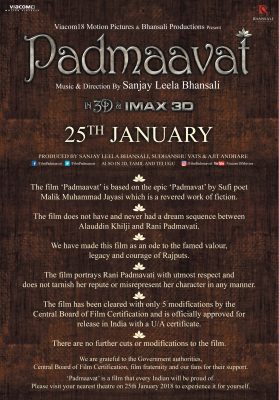
padmavat
The team clarifies that the original work is essentially a fictional account of two personalities written by poet Malik Muhammad Jayasi, and that there never has been a dream sequence between Rani Padmavati and Alauddin Khilji.
Recommended
These clarifications aren’t new, considering the makers had gone on record several times stating that not only aren’t there any dream sequels, the film is nothing but an ode to the valour of the Rajputs.
Towards the end of the advertisement, the makers thank the government and the CBFC. For those who have been following the controversy, many members of the ruling party had called for a ban on the film and forcing the filmmakers to follow the above caveats.
Amid violent threats, the vehement controlling of freedom of expression, and the categorical statements or lack of it from higher authorities — the row over Padmaavat has been a politically charged episode. The outrage, however, hasn’t died down with states like Gujarat and Rajasthan vowing not to screen the film.
With little support from the central and state governments and hatred on social media, this is not the first time a filmmaker has been coerced to appease the fringe groups who have reacted against the film. Remember, Karan Johar’s hostage video?
The above advertisement and the detailed clarifications are symptomatic of the current political climate in the country and the stifling of creative freedom. It is an attempt to wipe off the negative publicity that the film has garnered in the last one month.
